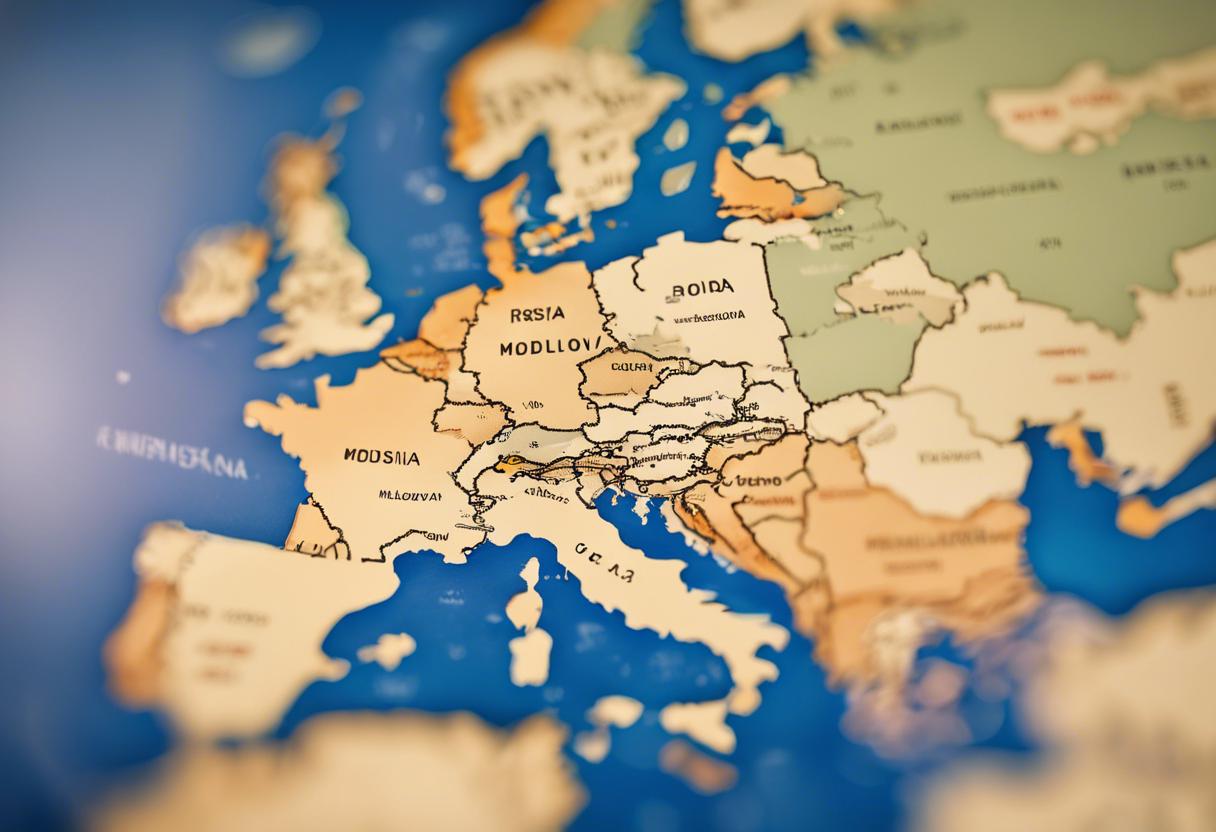Sunday saw Moldovans casting their votes in a crucial presidential election and referendum that could potentially cement or decimate their nation’s aspirations to become members of the European Union (EU), amidst allegations of interference from Russia.
The unfolding conflict in neighbouring Ukraine means Moldova is brought into sharper political and diplomatic focus. The country, a former Soviet republic, is seeking to break free from Russian influence by pursuing the stringent procedures required for EU membership.
Current polling data reveals that Maia Sandu, the nation’s existing president who has consistently advanced EU membership across her four-year tenure, dominates the election with a distinct advantage over her ten contenders. However, a run-off on the 3rd of November will be necessary if Sandu does not meet the 50 per cent criterion.
Should a second round be deemed necessary, Sandu, an ex-adviser for the World Bank, is forecasted to compete against Alexandr Stoianoglo, a pro-Russian ex-prosecutor-general, who is supported by the Party of Socialists. He’s 57 years old, five years older than Sandu.
The referendum will make the call on whether to incorporate a statement into the constitution that specifies an objective of EU membership. A “yes” vote would validate Sandu’s pursuit to join the bloc by 2030, while a “no” would deal a significant blow to her efforts.
The election’s outcome will provide the backdrop to the parliamentary elections slotted for next summer, where it is expected Sandu’s party may find it challenging to maintain its majority.
Sandu has passionately proclaimed the referendum vote will determine the destiny of Moldova for multiple forthcoming decades after she participated in the voting process, as she implores her compatriots to make their voices heard.
Most polls indicate a general favouring amongst the populace to join the EU. However, five election hopefuls have encouraged their followers to vote “no” or abstain, arguing the timing of the referendum was engineered to bolster Sandu’s election performance.
Notwithstanding hypothesising that the referendum might not draw in the minimum one-third voter turn-out, election authorities disclosed that the quota had been exceeded, achieving a 42 per cent voter turnout by 6pm.
Stoianoglo abstained from voting in the referendum, expressing his vision for a fresh administration and vowing to bolster connections with the EU, Russia, America, and China if he were to secure a victory.
Polling sites are due to shut down at 9pm local time, with anticipated rudimentary results declared at a press briefing scheduled for 10pm.
Tamara, aged 78, disclosed outside a polling venue that she cast a ‘no’ vote and disapproved of Sandu as she was “thoroughly disgruntled” and aspired for her country to better living conditions rather than aim to join the EU.
Vyacheslav, 60, and Tamara, 63, expressed that they cast their votes considering their offspring, Europe, and the future. Since the dissolution of the Soviet Union in 1991, Moldova’s allegiance has swung between a pro-Russia or pro-Western stance. The ties with Russia have been strained under Sandu’s administration. Russia has faced accusations from her government for orchestrating her ousting, invading Ukraine, and causing a disruption in the energy supply by slashing gas provisions.
The foreign ministry has indicated potential illicit activities at two voting stalls in Moscow, designated for the Moldovan diaspora, where artificial overcrowding was observed. This election has been marred by allegations suggesting manipulation and interference.
Ilan Shor, a magnate who resides in Russia and is considered a fugitive, has been blamed for attempting to bribe an estimated network of 130,000 voters to reject the vote and support a mystery candidate he would reveal at the eleventh hour. Shor, who faces sanctions from Western countries and has been convicted in absentia for fraud and theft, has allegedly proposed a financial inducement to Moldovans to convince others to vote no and back ‘our nominee.’ He has dismissed any claims of malpractice.
As the voting day approached, the national radio based in Chisinau implored citizens to resist voting for financial payoff and informed them that any such propositions should be reported to the relevant authorities.
Last Thursday, it was revealed by law enforcement agencies that a scheme had been exposed which transported hundreds to Russia where they received coaching to instigate public disorder and riots.
Russia has rejected any accusations of meddling and has labelled Sandu’s government as exhibiting ‘Russophobia.’ Police Commissioner Viorel Cernauteanu has reported that an influx of voice and text messages from overseas in recent days has been attempting to urge Moldovans to either boycott the poll or vote against it. Cernauteanu stated that law enforcement has acted to curb any impact on the voting process. “While there may be some level of impact, I don’t believe it will significantly influence the final vote,” he declared.

